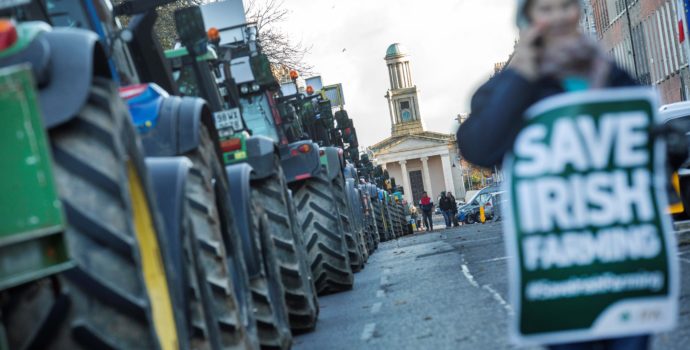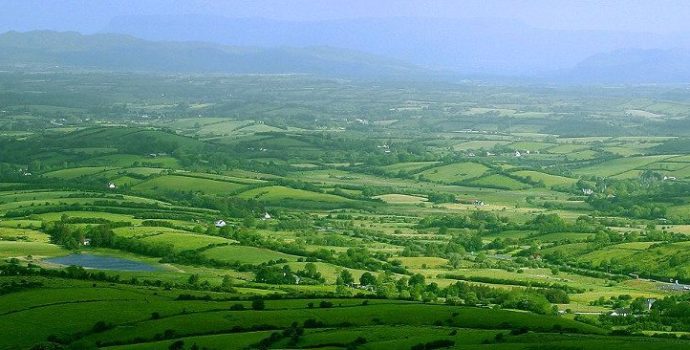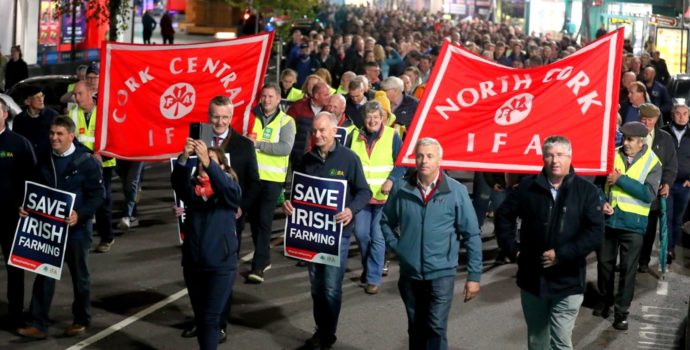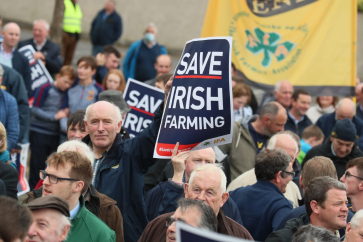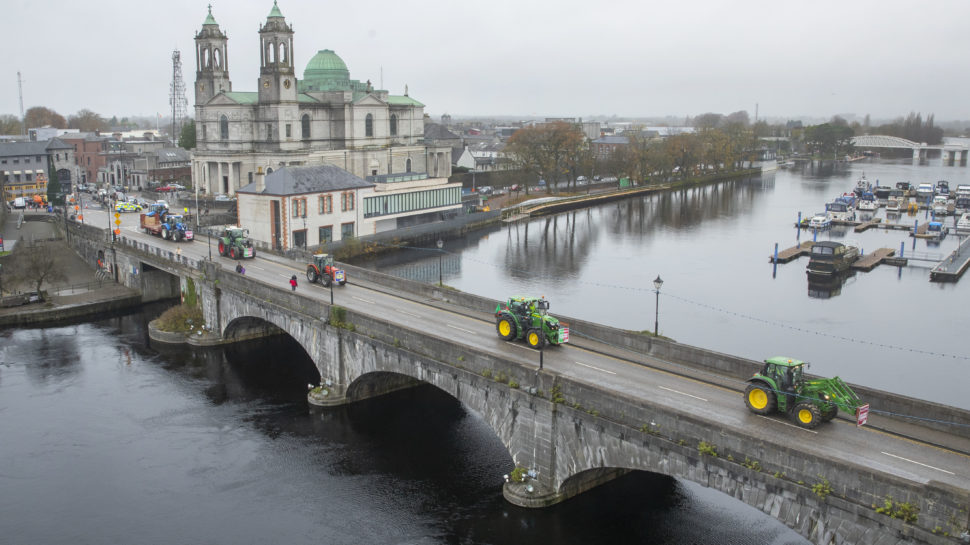
Today, (Sun, Nov 21st), the Irish Farmers’ Association brings its ‘Save Irish Farming’ campaign to Dublin.
A convoy of tractors and farm vehicles, led by IFA President Tim Cullinan, arrives in the city at lunchtime today.
The convoy is replacing IFA’s planned ‘Farm Family Rally’, which was modified due to the increase in Covid figures.
“Every policy of this Government, including their proposed National Strategic Plan to implement the Common Agricultural Policy, is designed to reduce production. Farmers are being asked to do more and more for less,” he said.
“We have consistently called for genuine engagement and negotiation with farm organisations to develop a farm-level plan that farmers can work towards achieving. To date, nothing has been forthcoming. All farmers have received is empty rhetoric and lofty targets with nothing to back them up. Uncertainty is detrimental for any business; farming is no different. Farmers are reaching the end of their tether.”
“Farmers are very conscious of the climate challenge, and farmers want to play their part. But this Government has no plan. Farmers are being talked at, rather than talked to. The Government needs to provide more funding, including a properly-funded Common Agricultural Policy, to ensure that farmers can take on the climate challenge while remaining viable,” he said.
“Currently, only 30% of farmers in Ireland are viable, and the Government’s policies will make more family farms unviable,” he said.
“The farming and food sector employs 300,000 people across the country, and we contributed €13bn in exports in 2020. We will not be ignored or pushed aside,” said the IFA President.
“The reality is that if food is not produced in Ireland, it will be produced in countries with a higher carbon footprint such as Brazil, where it was reported this week that 13,235 square kilometres of rainforest were cleared in 2020/2021.”
“Farming is a business activity, and farmers will not stay at it unless they can make a profit and make a living for their families,” he said.
| #SaveIrishFarming Facts Outside of Dublin and the mid-east region, the sector provides between 10% and 14% of employment. The agri-food sector makes a significant contribution to employment in rural and coastal areas in particular. The average herd size in Ireland is 70 cattle. The Irish climate and land are ideally suited to our grass-based production system. Ireland’s milk is the most carbon-efficient in the European Union and the 5th most efficient in beef (source: EU Joint Research Centre). Irish dairy herds graze open pastures for an average of 240 days of the year, enjoying a diet that’s 95% grass and grass-based forage. There are significant scientific developments happening in farming to reduce methane output per animal and other emissions. The contribution of biochemical methane (from cattle) to global warming is also being reviewed at international level. |

